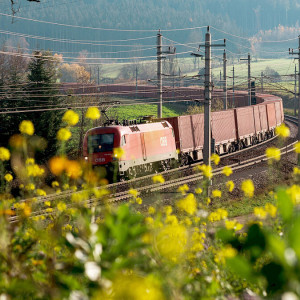RCG expands network with Sopron–Arad route

The OBB Rail Cargo Group (RCG) is enhancing its international rail freight offering with new routes and additional frequencies across Central and Southeast Europe. The latest developments include a new direct connection between Hungary and Romania, as well as expanded intermodal services in Belgium, Croatia, and Serbia, aimed at supporting efficient, sustainable logistics. 
New Sopron-Arad TransFER service launched
RCG has introduced a new TransFER service linking Sopron, Hungary, and Arad, Romania - a key logistics hub near the border.
The service, which operates on a fixed timetable, enables wagon groups and single wagons to be consolidated in Sopron and delivered to Arad within 24 hours. The corridor supports fast, scheduled rail transport with additional forwarding services including transshipment, warehousing, picking, and door-to-door delivery. This new offering is designed to reinforce conventional wagonload traffic while enhancing flexibility and reducing road freight emissions.
Genk-Curtici route increased to six weekly rotations
In response to growing intermodal demand between Western and Eastern Europe, RCG[1] has increased the frequency of its Genk-Curtici TransFER to six weekly round trips.
The route connects the Belgian logistics centre of Genk with the Curtici terminal in western Romania. Capable of carrying containers, swap bodies, trailers, and non-craneable semi-trailers, the service offers fixed schedules and a transit time of around 40 hours. The added frequency aims to further integrate Belgium into the RCG's Southeast European network, offering robust connections and operational reliability for logistics operators.
Boost for Belgrade-Rijeka corridor
The TransFER between Belgrade and the Croatian port of Rijeka will also see an increase from two to three weekly round trips, amid rising demand in the Western Balkans.
The route provides direct access between the Nelt terminal near Belgrade and Rijeka, through which around 70% of Serbia's international freight moves. Utilising RCG's own traction, the service delivers transit times of up to 24 hours and includes first- and last-mile logistics. The expanded service supports the development of intermodal flows in the region, providing a resilient, sustainable alternative to road transport.
Vienna-Duisburg service sees positive uptake
Two months after its launch, the Vienna-Duisburg TransFER is gaining traction with two weekly round trips now firmly in the schedule.
The route complements the established Budapest-Duisburg corridor and supports intermodal flows through key hubs in Austria, Hungary, and Italy.
With competitive transit times and integrated connections, the Vienna-Duisburg service is proving a valuable addition to the RCG network, bolstering rail's role in European freight transport.
Share on: